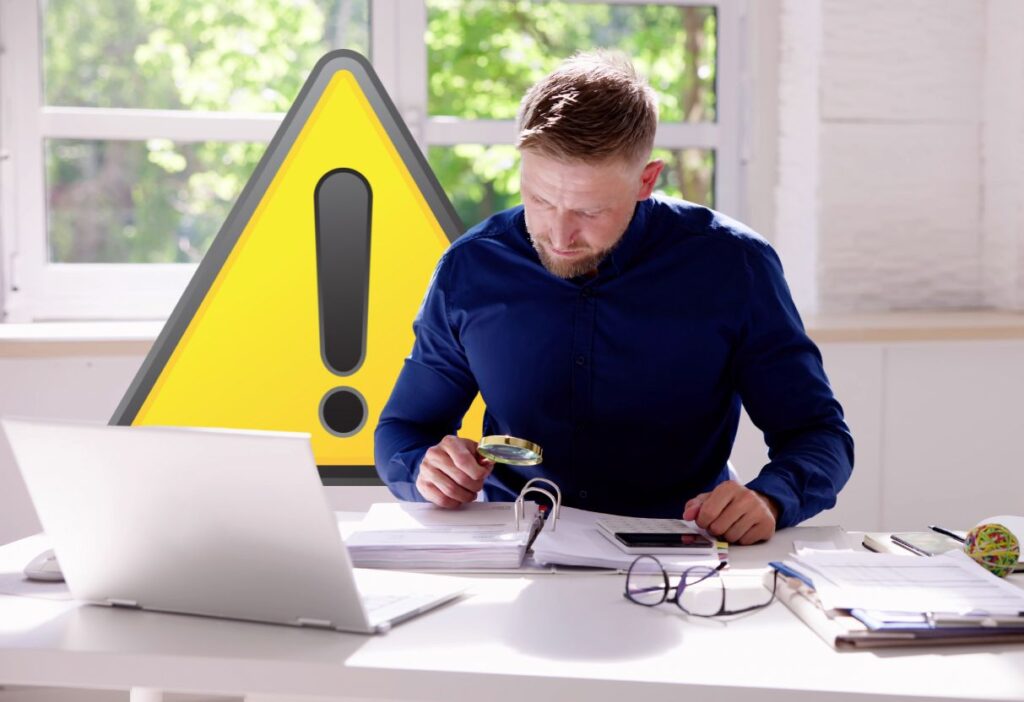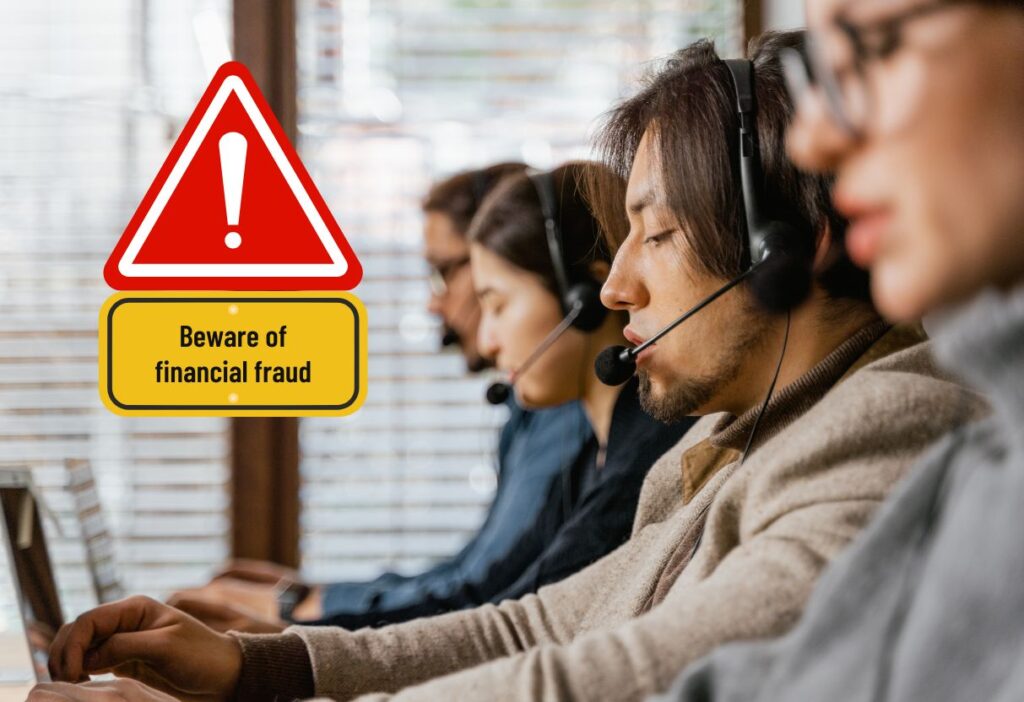In today’s digital world, financial scams are more common than ever in the UK. People are losing money to fraudsters who use clever tricks to deceive them. These scams can look very real, making it hard to spot the danger.

Learning about these common scams can help protect your money. Recognising signs of fraud is key to keeping personal information safe. Such awareness can prevent serious financial loss and stress.
Sharing this knowledge with others can create a safer environment for everyone. Understanding how these scams work not only helps individuals but also strengthens the community.
Key Takeaways
- Identify the signs of financial scams.
- Stay informed on how to protect your information.
- Know what to do if you suspect a scam.
Recognising Common Financial Scams

Financial scams in the UK can take many forms, but there are common warning signs to be aware of. Understanding these scams can help individuals protect their money and personal information. Below are some of the most prevalent scams people should watch out for.
Phishing Scams
Phishing scams often involve fake emails or messages that seem to come from well-known companies. They usually ask for personal or financial information. Scammers may use official-looking logos and addresses to trick recipients.
These scams may ask individuals to click on a link that takes them to a fake website. On this site, they might be asked to enter passwords or bank details. Always check the email address for any unusual spelling or numbers. Avoid clicking links; instead, type the web address directly into the browser.
If unsure, contact the company directly to verify any requests. Legitimate businesses do not usually ask for sensitive information via email.
Pension Scams
Pension scams involve offers that promise high returns on pension savings. Scammers might approach individuals through cold calls, texts, or social media. They often offer free pension reviews or pressure victims to transfer funds quickly.
These scams might advertise overseas investments or options to access pensions before retirement age. Such offers could lead to losing the entire pension pot. Always check if the provider is registered with the Financial Conduct Authority (FCA).
Maintain a list of trusted financial advisers and consult them before making decisions. Rushing into financial choices without proper advice can be risky.
Investment and Ponzi Schemes
Investment and Ponzi schemes lure individuals with promises of high returns and low risk. They often advertise amazing business opportunities or unusual products. These schemes depend on new investors to pay returns to earlier investors.
The initial returns might seem genuine, reinforcing trust. Over time, these schemes collapse when recruitment slows down. Always be cautious of schemes promising too-good-to-be-true returns.
Verify investment opportunities with the FCA. A thorough check can prevent falling victim to these scams. Be sceptical of high-pressure sales tactics urging immediate investment decisions.
Protective Measures and Best Practices

Staying safe from financial scams requires maintaining the security of personal details, verifying the identities of those you deal with, and using reliable payment methods.
Secure Personal Information
Keeping personal information secure is essential. Passwords should be strong and unique, combining letters, numbers, and symbols. It’s helpful to change them regularly. Avoid using easily guessed information like birthdates or names.
Personal data must not be shared recklessly. This includes bank details, phone numbers, and addresses. By monitoring financial statements and accounts, unusual activities can be spotted early. Another important step is using two-factor authentication. This adds an extra layer of security to online accounts. It’s also wise to ensure devices have updated security software to protect against malware and other threats.
Verify Credentials
Before engaging with companies or individuals, checking their credentials is crucial. This involves researching businesses online to see if they have a legitimate website or positive reviews from past customers.
Official government or organisational websites often provide lists of verified businesses. Cold calls or unexpected emails should be approached with caution. Scammers often pose as representatives from trusted companies. If in doubt, contacting the company directly using official contact details can confirm any communication.
Being wary of deals that seem too good to be true is important. Scammers might offer unrealistic returns on investments or very low-priced products. Real businesses provide clear contact information and are transparent about what they offer.
Use Trusted Payment Methods
When making payments, using trusted methods is vital. Credit cards are often safer than debit cards or bank transfers. They provide greater fraud protection, and most credit card companies have policies for reversing fraudulent transactions.
It’s important to avoid wire transfers or prepaid cards. These methods are hard to trace and recover. Using secure payment platforms like PayPal can add a layer of safety. These platforms often offer buyer protection, which is helpful if something goes wrong.
Checking for secure payment portals is also necessary. Websites should have ‘https’ in the URL and display a padlock symbol. Scammers often use fake sites without these security measures. Adjusting these habits helps protect against financial scams.
Steps to Take If You Suspect a Scam

If something seems off with financial dealings, quick action is key. Take steps to protect personal information. Notify banks and authorities to minimise risks.
Contact Financial Institutions
Reaching out to financial institutions is critical. Notify your bank immediately if you suspect fraudulent activity. They can freeze your account to stop unauthorised transactions. Clearly explain the situation and provide any relevant details or evidence.
Many banks have a 24-hour hotline for such emergencies. It can be helpful to have this number saved for quick access. Banks may also guide you on what additional steps to take, such as changing passwords or verifying recent transactions.
Report to Authorities
Reporting the suspected scam to the authorities is essential. In the UK, Action Fraud is the national centre for reporting fraud and cybercrime. They can gather data and investigate your claims. Filing a report helps track and combat these scams, possibly helping others in the process.
Keep a record of all correspondence with the scammers, including emails and messages. This information can aid in investigations. It’s important to be honest and concise in your report to ensure clarity.
Monitor Your Accounts
After reporting, monitor all accounts closely. Check statements regularly for any unauthorised transactions or unexpected changes. Early detection can prevent further harm.
Enable alerts from your bank for real-time updates on your account activities. It’s also wise to change passwords and security questions to safeguard information. Constant vigilance is necessary to catch any new suspicious activities quickly. Stay watchful and be proactive in safeguarding personal finances.